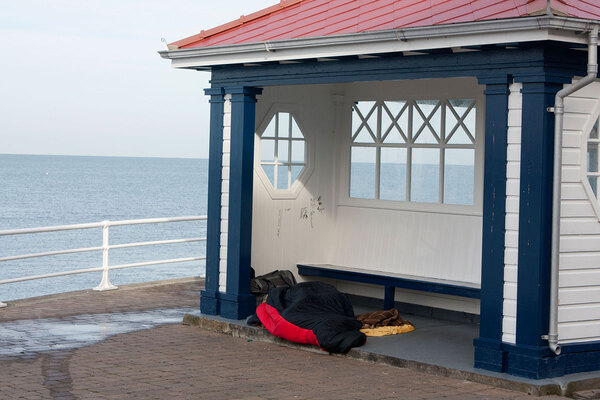Moral dilemma for housing officers
Inside Housing’s anonymous columnist is in a dilemma about whether to follow the rulebook or his moral compass
Are housing officers, like police officers, always on duty? Every so often I come across a tenant behaving badly, but struggle with my conscience over reporting them.
I was stuck firmly on the horns of a dilemma recently, when drawn into helping a distant relative with her housing problems. Hers is a long, sad, story - as so often.
The gist of it is that she has had her children put up for adoption and stands to lose her temporary homeless accommodation as a result.
It isn’t just that she no longer needs the three-bedroom house she was given - she has also moved in with her ex-partner, leaving the house empty six days out of seven.
Now, Julie, as I’ll call her, is not living in my own council’s area. Her house is on an estate in a neighbouring authority. That council uses of lot of private-sector housing to cater for homeless people, which she once was.
I know just how hard pressed it is to find houses in that council, because we train staff together and I deal with many of its transfer cases.
Moral maze
In my own authority, knowing Julie’s situation and failing to report it might put me out of a job. Or at least on a disciplinary.
I can ‘get away’ with it in her case, because she doesn’t live on my patch.
But should I?
The bald facts don’t quite explain how this has become such a tricky dilemma. To understand why I am scratching my head and searching for my moral compass, you need to know more details.
Julie’s ex-partner is a drug dealer. He is awaiting a court appearance that will almost certainly lead to a jail sentence. No less than three years, I reckon - maybe five.
Did we warn her not to go back to him? Of course we did. But living in an empty house, when your children are gone can be depressing: bedrooms still full of toys that will never be used, Disney wallpaper peeling and reading books lying about. All the baby food and Pampers are still in the kitchen cupboards. There is plenty to remind her of what she has lost.
To make it worse, she believes her children should never have been removed from her care. We all knew she wasn’t coping but she couldn’t face up to that, and still doesn’t accept the judgment.
Downward spiral
So, here is a sad and vulnerable individual, making some bad housing decisions at a time of crisis. If she stays with her partner informally, she will have no occupancy rights once he goes to jail and loses his tenancy.
When the letting agents discover that she is not living at home, she will lose that tenancy as well. Then it will be back to homeless hostels or shared flats.
So, what would you advise her to do? What she really needs is to swap her three-bedroom temporary accommodation for a one-bedroom temporary flat. But frankly they are harder to spot than hippos splashing about the local swimming pool. There is every chance she will be steered to shared accommodation. She has had bad experiences with that in the past.
She could try to persuade the council that she is reconciled with her former partner, wants to live with him and to take on a joint tenancy. As long as he doesn’t go to jail too soon, she might get away with that.
But should she do that? She isn’t in a real relationship with him - she is staying at his house for some short-term comfort. And by taking on his tenancy, when he eventually gets sent down, isn’t she skipping up the waiting list?
If I were looking at this mess with my council hat on, I would tell Julie she must leave her ex. Staying is simply dishonest.
She should move to a more suitable temporary let, even if that means sharing, or perhaps a hostel - not least because she’s costing the council (and the taxpayer) not far from £1,000 a month in rent and council tax, for a property she is hardly staying in.
Shop tactics
Can I bring myself to shop her to my acquaintances in the other housing department? Well, so far I haven’t. I have my justifications ready, though I don’t know whether they will convince you.
First off, it isn’t Julie’s fault that she is in this situation. She never asked to have her children taken for adoption. She put up quite a fight, in fact. She is in inappropriate housing because of circumstances, not design.
She hasn’t any close friends to turn to. She has fallen out with her immediate family, following a vicious campaign against her for consorting with the drug dealer. Apart from him, our family is the nearest to support she has - and we are very distant relatives, many miles away.
Julie may be vulnerable, but she doesn’t trigger any support from the system. Her children have social workers, but she isn’t considered to need one herself. She requires psychiatric help but, again, she is not a priority and sits right at the back of the queue.
This is my dilemma. On paper, there is no question about what should happen here. Julie needs to knuckle down to sharing a flat. Up close, however, I can see just how undermining that will be for her.
Am I right to do nothing?
Inside Housing’s anonymous columnist is a senior housing officer









